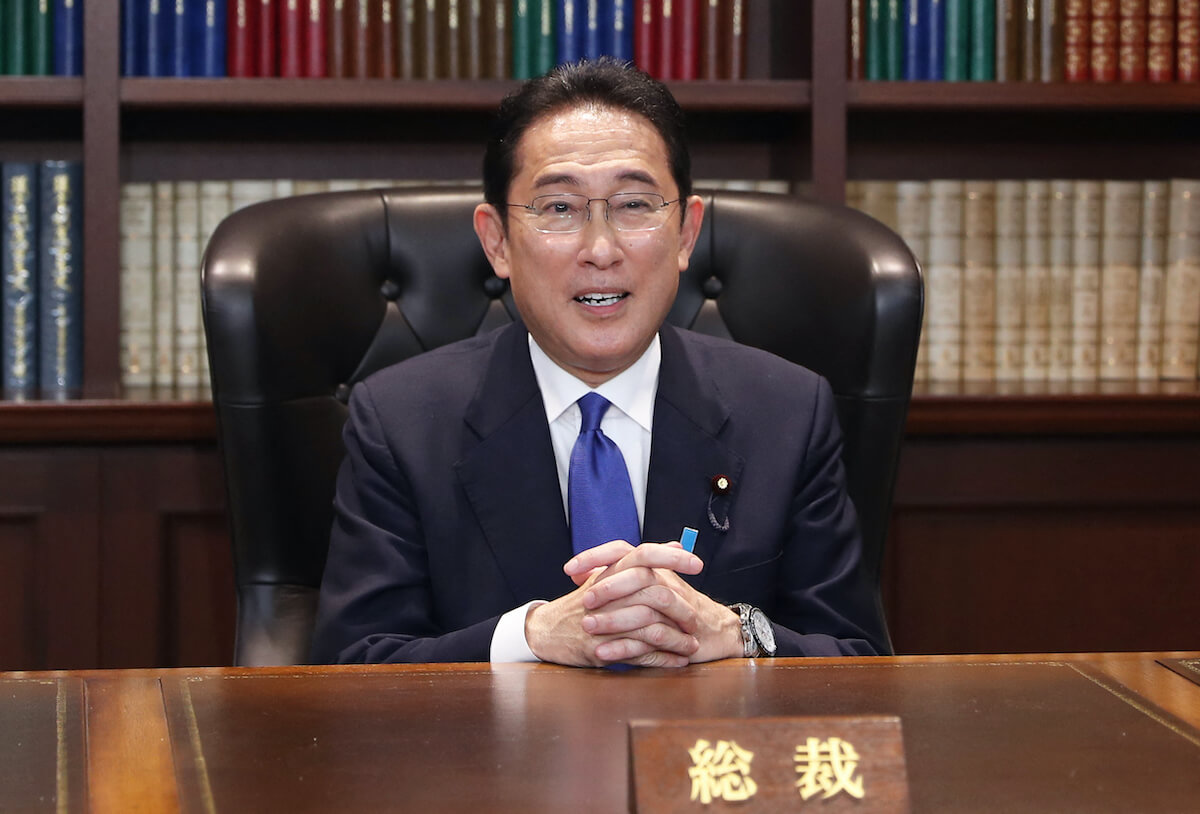Japanese Prime Minister (PM) Fumio Kishida delivered a special address at the Davos Agenda meeting which was held virtually on Tuesday.
At the outset, the PM emphasised the need to tackle three urgent agendas: overcoming the COVID-19 pandemic, reviving the Japanese economy through a “new form of capitalism,” and pursuing “realism diplomacy for a new era.”
In light of rising cases due to the highly transmissible Omicron variant of the coronavirus, Kishida requested the international community’s understanding for Japan’s strict border measures. “There are strong calls from the [Japanese] people for strict border controls,” he said.
The rapid surge of COVID-19 cases over the last two years in Japan has also affected the once robust economy. Addressing this, Kishida stressed the need for Japan to shift away from Abenomics, an economic policy of massive monetary and fiscal stimulus, made popular by the country’s former PM Shinzo Abe.
Abenomics was implemented in 2013 to pull Japan out of economic stagnation. However, the policy failed to close income gaps that widened as the ranks of workers in less-secure, low-paid jobs grew. Referring to this failure, Kishida said that Abenomics is “clearly insufficient to transform Japan’s economy into a sustainable and inclusive one.”
Instead, the PM underscored his determination to transform the economy through a “new form of capitalism,” which he said would help create a cycle of economic growth and wealth distribution. According to a press release by the Japanese foreign ministry, Kishida stated that through this “new form of capitalism,” he will “attach the importance to having both the public and private sectors work together towards reforms, sharing the full picture of social and economic transformation, rather than leaving everything to the market and competition.”
In this respect, the leader reaffirmed his goal of achieving a full-scale “twin-engine of growth and distribution,” by launching new mechanisms to attract investment.
Moreover, Kishida emphasised the need for digital technology in “solving Japan’s social problems.” He revealed that his administration has been promoting the development of telecommunications infrastructures, including submarine cables and optical fibre networks. “We’ll review a total of some 40,000 regulations and systems in light of digital principles,” Kishida noted.
On climate change, the PM pledged to cooperate closely with other countries in Asia. “I aim [to set up] the ‘Asia Zero-Emission Community,’ for jointly conducting technological development, infrastructure investments, and fund raising,” he said. Kishida added that he would like to present to the Japanese public a framework for a carbon pricing mechanism, as Japan strives to achieve carbon neutrality by 2050.
The World Economic Forum, which holds its annual meetings in Davos, Switzerland, brings together global leaders to brainstorm solutions to the world’s most pressing challenges.

